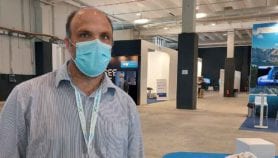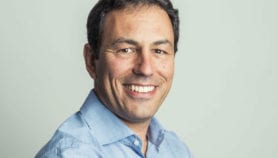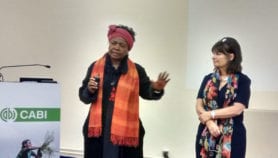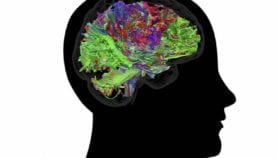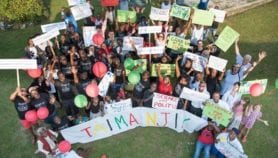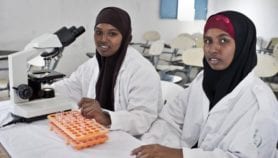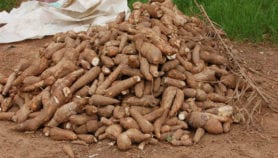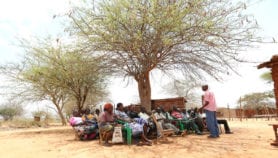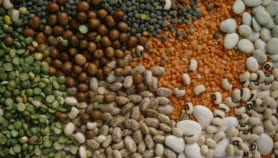By: Yojana Sharma
Send to a friend
The details you provide on this page will not be used to send unsolicited email, and will not be sold to a 3rd party. See privacy policy.
Twenty-five years after TWAS was set up, Yojana Sharma examines whether it is any nearer to achieving its ambitious goals
It was a challenge almost as daunting as combating global poverty itself — help scientific research in developing countries catch up with the most advanced nations. But TWAS, the academy of sciences for the developing world, remained undaunted. Now, 25 years on, it is taking stock of its efforts.
Small beginnings
Founded by 41 eminent scientists in 1983, TWAS now has more than 870 members, with 85 per cent from developing countries and 16 Nobel prize winners.
And although it depended for many years on one donor, the Italian government, it set up an endowment fund in 1993, which has grown to US$12 million and TWAS hopes will expand to US$25 million.
"There are serious scientists involved, which means governments pay attention to it," says Peter Collins, of the Royal Society, the UK’s national academy of science.
The world has changed radically in the past 25 years. China and India are emerging as major scientific nations. There has also been progress in Latin America, particularly Brazil, Argentina and Mexico. And communications technology has made many developing country scientists less isolated, although the digital divide threatens to leave the poorest countries even further behind.
But education and training remain significant concerns. A recent TWAS survey found that 80 countries do not have the means or capacity to develop their science sector and most of these are in Sub-Saharan Africa.
Honour the best
An early TWAS goal was to identify and honour the best ‘Third World’ scientists (TWAS’s original name was the Third World Academy for Sciences) and convince them that their work is as important as that of colleagues in the West. Scientists in developing countries suffer from poor pay, inadequately equipped laboratories and isolation. Often there are few rewards for staying.
So TWAS has established a number of prizes, for women scientists and for young scientists under 40. And alongside research grants, the organisation also offers fellowships and travel grants to improve contacts between individual scientists and institutions in the South.
The prizes do make a difference, says Filipino microbiologist Maria Corazon De Ungria, who recently won a TWAS young scientist prize and has a TWAS research grant for her work on DNA testing, setting up her own DNA analysis laboratory at the University of the Philippines. "Because the TWAS prize is an international award, it showed that the work my lab is doing is recognised in the Philippines and overseas. It does add to an individual’s credibility," she says.
For Professor Beatriz Barbuy, a Brazilian astronomer whose work has made a major contribution to studies of how the chemical composition of stars evolves, the 2008 TWAS science prize was her first ever, despite a distinguished career. She says she often regretted returning to Brazil after completing her doctorate in France, but the award made her return worthwhile. "I think the prize will help to raise funding. We have proposed an institute for astronomy in Brazil," she says.
TWAS awards and fellowships also help scientists to network. Maurice Tchuente, Cameroon’s former higher education minister and one of Africa’s most prominent researchers in computer science, was a TWAS fellow in 1999 and was due to be awarded the CNR Rao prize for scientific research at TWAS’s 25th anniversary celebration this week. He says: "It opened up new horizons, including invitations to international seminars."
It was his only opportunity to meet leading scientists and officials in NGOs and international organisations.
"It was during a meeting organised by TWAS that I met researchers from neighbouring countries working in the same area as myself. Their collaborative networks had grown from their time spent studying in the North and were therefore disconnected from mine, " Professor Tchuente says.
Tiny Secretariat
TWAS is also lauded for its work, with support from Unesco and regional organisations, in helping set up national and regional academies of science and strengthen their ability to advise science and education ministers.
"Governments pay lip service to science. A lot of political action is useless if there is no follow up," says Professor Ernesto Lara Lupercio, general secretary of the Mexican Mathematical society and himself a TWAS young scientist prize-winner.
TWAS has been adept at getting together science policymakers and politicians from different countries. Professor Lupercio says that can help correct some of the problems, but the effect of what TWAS is doing is "micoscopic", because the problems are so very deeply ingrained in many Latin American and other poor countries. "With their budget, their intentions are extraordinarily ambitious," he says.
TWAS’s budget is over 30 times smaller than that of the Royal Society, and its dozen-strong secretariat staff is dwarfed by the Royal Society’s 134.
It is clear that TWAS alone cannot convince the world’s politicians that science is important for development.
But Mohamed Hassan, executive director of TWAS, believes that many academies, including the Network of African Science Academies, which TWAS has supported, are now gaining momentum and will be important in tackling problems in the science-poor region.
"The biggest challenge of all is to make science work for society," he says. "We need scientists and we can use scientific capacity to solve problems. We need centres where the problems are — in developing countries themselves."
Michael Ståhl, director of the International Foundation for Science in Stockholm whose own organisation provides research grants to many scientists in the developing world, agrees. "There is a great need for a ‘critical mass’ of scientists in developing countries and TWAS has been instrumental in identifying many top scientists," he says.
This is important if another TWAS vision is to be realised: fostering scientific research on major developing world problems.
Perhaps crucially, many TWAS awardees over the past 25 years are active in national and regional science academies, and even in major international science bodies.
"The TWAS award is certainly not irrelevant to my recent election as secretary general of the International Council for Science [ICSU]," Professor Tchuente says. "Organisations like TWAS have developed a unique expertise in interdisciplinary and transnational problems that can be dealt with through
science and are not easy to tackle nationally."
South–South success
Dr Hassan concedes that TWAS’s biggest failing so far has been in North–South cooperation. There is little to show for 25 years of shuttling around the world.
But there has been one grand and perhaps unexpected success. "South–South cooperation is TWAS’s most important accomplishment," Dr Hassan says. "It was difficult because the best students — and we were looking at the best — wanted to go to advanced countries in Europe and to the United States."
So TWAS identified the best institutions in developing countries and publicised them, encouraging students and staff to stay rather than head to the North.
And now there is a new impetus in South–South cooperation. "Some developing countries are moving very fast in developing their science infrastructure. The best thing that TWAS did was to make full use of that," says Dr Hassan. "We negotiated postgraduate programmes with five countries — India, China, Mexico, Brazil and Pakistan — who thought, rightly, that this was a win-win situation."
With some 300 scholarships in these countries for students from the poorest countries, particularly Africa, Dr Hassan describes it as "the largest South–South cooperation in science". TWAS has helped these countries step into a breach never filled by Europe or the United States.
Updated 13 November 2008
More on Networks

Script media release
Journalists offered ‘big break’ mentoring opportunity from Radio Nigeria
03/04/19



